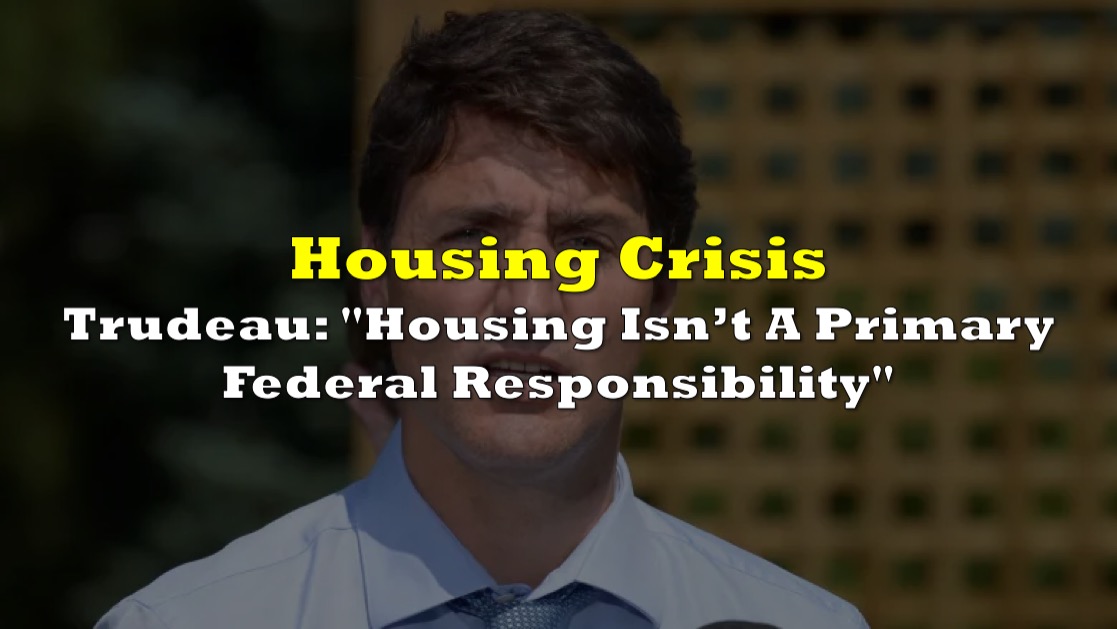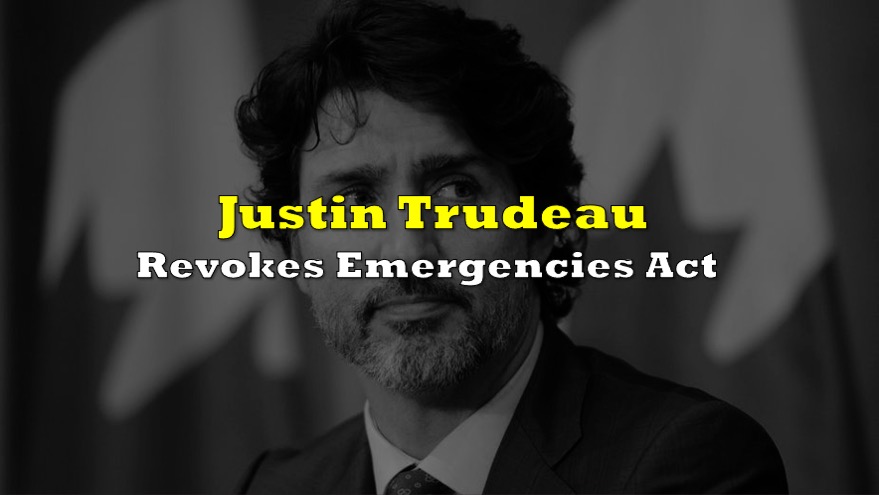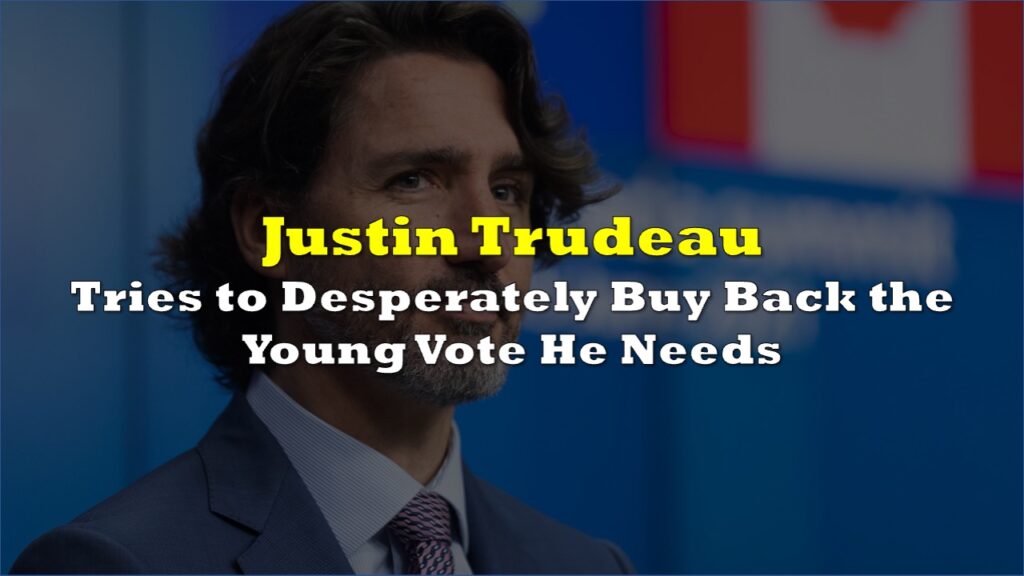Canadian Prime Minister Justin Trudeau addressed the issue of soaring housing costs, acknowledging some of the factors contributing to the problem while defending his government’s efforts. During a visit to Hamilton, Ontario, Trudeau highlighted the federal investment in a housing project and stressed the government’s commitment to making housing more affordable for lower and middle-income Canadians.
Trudeau acknowledged that while housing is not primarily a federal responsibility, his government can and must play a role in finding solutions.
“I’ll be blunt: Housing isn’t a primary federal responsibility,” Trudeau said. “It’s not something that we have direct carriage of, but it is something that we can and must help with.”
Trudeau says housing isn't a federal responsibility.
— SmallCapSteve (@smallcapsteve) July 31, 2023
– Why does half his cabinet own income properties?
– What about when his actions directly impact interest rates?
– Or young people who have written off home ownership?
"Not my bag baby" – JTpic.twitter.com/0dZiE1UtZC
He instead pointed out that provinces and municipalities, which control land-use planning, zoning, and permitting, are crucial in tackling the housing crisis. He also cited the previous Conservative government’s failure to address the issue during its tenure.
This marks a shift in Trudeau’s rhetoric since his government first took office in 2015. He had previously introduced an ambitious $82 billion national housing strategy, which included promises to double the pace of housing starts over the next decade. However, housing costs have continued to rise, with benchmark house prices reaching $749,100 in June.
The increase in housing costs has been exacerbated by the record-high immigration targets set by Trudeau’s government, which has led to increased demand for housing and further strained the already limited supply.
Weird how there’s a housing minister and housing keeps showing up in federal budgets then 🤔 https://t.co/V9S990FZVI
— Sabrina Maddeaux (@SabrinaMaddeaux) July 31, 2023
Critics, such as John Pasalis, president of Realosophy Realty, argue that the government is not doing enough to solve the housing crisis it helped create. Pasalis pointed out that the government’s rapid population growth targets without adequate housing plans have worsened the situation.
“[This] housing crisis is not decades in the making. The data is quite clear that house prices began to accelerate far more rapidly when compared to previous trends – sometime after 2015,” Pasalis wrote in an X post.
As I wrote here, this housing crisis is not decades in the making.
— John Pasalis (@JohnPasalis) July 31, 2023
The data is quite clear that house prices began to accelerate far more rapidly when compared to previous trends – sometime after 2015 4/https://t.co/N7yzKrJRNB
The issue of housing costs has become a central focus for Trudeau’s main political rival, Pierre Poilievre, whose Conservatives are ahead of the Liberals in recent polls.
Trudeau recently reshuffled his cabinet to emphasize economic issues, including housing, and appointed Sean Fraser as the housing and infrastructure minister.
Trudeau vs Trudeau pic.twitter.com/IgpwOR90Yu
— Pierre Poilievre (@PierrePoilievre) July 31, 2023
Making Ottawa Affordable co-founder Dean Tester posted on X noting that Canada Mortgage and Housing Corporation (CMHC) has highlighted the urgency of the Canadian housing crisis, stating that the country needs to build 580,000 homes per year for the next decade to meet demand adequately. However, the government’s efforts have fallen significantly short of this ambitious target, raising concerns among citizens and opposition parties.
“The Liberals have spent $33 BILLION on the ‘National Housing Strategy’ to get us 107,000 units in five years. Put in perspective — their “plan” is meeting less than 4% of the CMHC target annually,” he wrote in his tweet.
Recently appointed Housing Minister, Sean Fraser, faces the daunting task of defending the government’s existing policies while grappling with the pressing need for more effective solutions. If the government continues to fall short of expectations, it may face significant repercussions in the upcoming elections, as Tester said.
The Liberals have been a spectacular failure on housing.
— Dean Tester (@DeanTester) July 31, 2023
The CMHC says Canada should build 580,000 homes/year for the next decade.
The Liberals have spent $33 BILLION on the "National Housing Strategy" to get us 107,000 units in five years.
Put in perspective — their "plan" is… https://t.co/IuuO7RUSGH
Trudeau expressed his hope that inflation would continue to decline, leading to lower interest rates, which would ease mortgage costs for Canadians struggling with housing affordability. The Bank of Canada had recently raised rates to 5%, the highest level in 22 years, contributing to a 30% increase in mortgage interest costs from the previous year.
These remarks also indicated a shift in the Liberal leader’s stance toward monetary policy, as he publicly expressed a desire to see lower interest rates to alleviate housing affordability challenges. Fraser also highlighted interest rates as a factor contributing to the affordability issue, especially for families with variable-rate mortgages.
Information for this story was found via Bloomberg and the sources mentioned. The author has no securities or affiliations related to the organizations discussed. Not a recommendation to buy or sell. Always do additional research and consult a professional before purchasing a security. The author holds no licenses.









